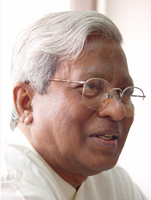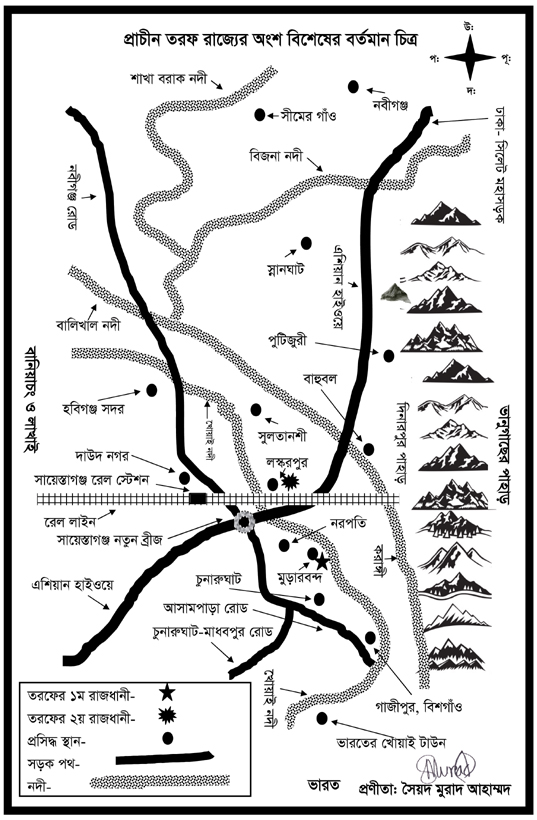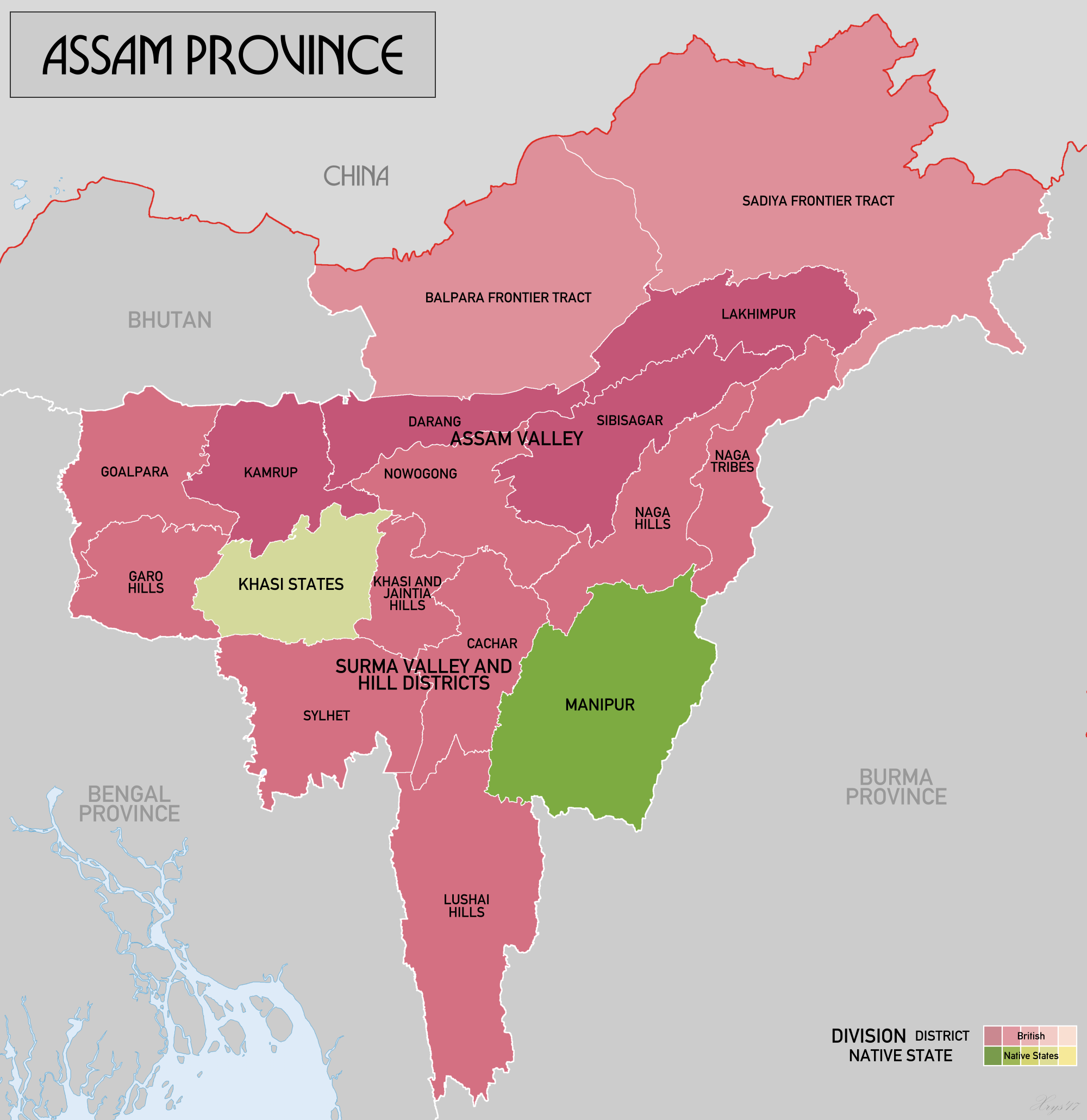|
Baniachong
Baniachong ( bn, বানিয়াচং) is an upazila of Habiganj District in the Division of Sylhet, Bangladesh. Village Baniyachong is the biggest and the most populous village in Asia. History Baniachong constituted the grand estate (zamindari) of Anwar Khan, who was looked upon as a raja by the local people. Estate of Baniachong was so vast it crisscrossed all districts of Sylhet region as well as the greater Mymensingh, Dhaka and Comilla. In accordance with the Pargana system introduced by Murshid Quli Khan in 1722, Anwar Khan claimed tenure of 28 Parganas of Muazzamabad, but his claim was rejected after an investigation by the revenue office, as these Parganas belong to the posterity of Shah Muazzam Uddin Qureshi, who assumed the name of Muazzam Khan when he ascended the throne of Muazzamabad. Hence, these 28 Parganas: Banshikunda (Vamshikunda), Ranadigha, Shelvarsh, Sukhaid, Bétaal, Palash, Laxmanshree, Chamtala, Pagla (Paragala), Dohaliya, Bazu Jatua, Sinchapaid, Sha ... [...More Info...] [...Related Items...] OR: [Wikipedia] [Google] [Baidu] |
Fazle Hasan Abed
Sir Fazle Hasan Abed ( bn, ফজলে হাসান আবেদ; 27 April 1936 – 20 December 2019) was the founder of BRAC, one of the world's largest non-governmental organizations. Early life Abed was born on 27 April 1936 in the village of Baniachong, located in what is present-day Habiganj District, Sylhet, Bangladesh. He belonged to a Bengali Muslim family of Zamindars, known as the Hasan family, and was one of eight children of Siddiq Hasan and Syeda Sufia Khatun. Abed's maternal grandfather, Syed Moazzem Uddin Hossain, had served successively as ministers for agriculture and education for Bengal during the last years of British rule. His paternal great-uncle was Sir Syed Shamsul Huda, a member of the Imperial Legislative Council. After passing intermediate from Dhaka College in 1954, Abed left home at the age of 18 to attend University of Glasgow, where, in an effort to break away from tradition and do something radically different, he studied naval architect ... [...More Info...] [...Related Items...] OR: [Wikipedia] [Google] [Baidu] |
Muhammad Arshad (writer)
Muḥammad Arshād ( bn, মাওলানা মুহাম্মদ আরশাদ, fa, مولانا محمد ارشاد), was a late 16th-century Bengali Muslim author who wrote in the Persian language. He was a prominent Mawlana that resided in Baniachong. Arshad wrote the Persian book ''Zaraul Musannif'', which made him one of the earliest authors in the Sylhet region. See also *Syed Shah Israil *Syed Pir Badshah *Syed Rayhan ad-Din Syed Rayhān ad-Dīn ( bn, সৈয়দ রায়হান উদ্দিন, fa, ) was a medieval Sufi author of Bengal. His work gained recognition at the imperial court of Delhi, where he gained the nickname Bulbul-e-Bangālah ( fa, ب� ... References People from Baniachong Upazila Bengali writers 16th-century Persian-language writers 16th-century male writers 16th-century Muslim scholars of Islam 16th-century Indian Muslims 16th-century Indian scholars 16th-century educators 16th-century deaths 16th-century nobil ... [...More Info...] [...Related Items...] OR: [Wikipedia] [Google] [Baidu] |
Najmul Hasan Zahed
Najmul Hasan Zahed was a Bangladesh Awami League politician and the former Member of Parliament of Habiganj-2. Birth and family life Zahed was born and raised in a Bengali Muslim Zamindar family in the village of Kamalkhani in Habiganj's Baniachong Upazila. His father, Siddiq Hasan, belonged to the Hasan family. His mother was Syeda Sufya Khatun. His older brother is Fazle Hasan Abed, the founder of BRAC, the world's largest non-governmental organisation. He was the director of the Bangladesh National Tea Company (NTC). Career Zahed was elected to parliament from Habiganj-2 as a Bangladesh Awami League candidate in 2001. Death and legacy Zahed died of old age at the Apollo Hospital Dhaka on 16 August 2010 at 80 years of age. He was buried in the Hasan family graveyard in Baniachong Baniachong ( bn, বানিয়াচং) is an upazila of Habiganj District in the Division of Sylhet, Bangladesh. Village Baniyachong is the biggest and the most populous village in Asia. Hi ... [...More Info...] [...Related Items...] OR: [Wikipedia] [Google] [Baidu] |
Habiganj District
Habiganj ( bn, হবিগঞ্জ, Hobigonj), formerly known as Habibganj ( bn, হবিবগঞ্জ, Hobibgonj), is a district in north-eastern Bangladesh, located in the Sylhet Division. It was established as a district in 1984 as a successor to its ''subdivision'' status since 1867. It is named after its headquarters, the town of Habiganj. History Ancient Prehistoric settlements were said to have been discovered in the Chaklapunji tea garden, near Chandirmazar of Chunarughat. Habiganj has also revealed a significant number of prehistoric tools from the bed of Balu Stream, a small ephemeral stream (water remains here only for a few hours after rainfall). Angularity and freshness of the fossil wood artifacts suggest that they did not come from a great distance and probably came from nearby hillocks. Typologically, technologically, and morphometrically, the artifacts are more or less the same as those found in the Lalmai, Comilla. The fossil wood assemblages of both of ... [...More Info...] [...Related Items...] OR: [Wikipedia] [Google] [Baidu] |
Ramnath Biswas
Ramnath Biswas ( bn, রামনাথ বিশ্বাস, Ramnath Bishshash; 13 January 1894 – 1 November 1955) was an Indian revolutionary, soldier, globetrotter and travelogue writer. He is known for circumnavigating the globe by bicycle. Early life Ramnath was born to Birajanath Biswas and Gunamayee Devi in the year 1894 in the Vidyabhusanpara village of Baniachong in the Sylhet District of Assam which now falls under Habiganj District of Bangladesh. In his childhood he attended the Harischandra High School till the eighth grade. He had to quit studies due to the untimely death of his father. Career Ramnath started his career as a manager at the Jatiya Bhandar Samiti, a Swadeshi enterprise based in Sylhet. Jatiya Bhandar Samiti had a motor car repairing workshop and Ramnath learnt driving. During his tenure in this organization, he also learnt how to ride a bicycle and became quite expert at it. Then he left the job at Jatiya Bhandar Samiti and took up another job ... [...More Info...] [...Related Items...] OR: [Wikipedia] [Google] [Baidu] |
Sirajul Hossain Khan
Sirajul Hossain Khan (1926-2007) was a Jatiya Party politician and former minister and member of parliament for Habiganj-2. Early life Khan was born on 17 July 1926, in Baniachong village, Baniachong Upazila, Habiganj subdivision, Sylhet district (of Assam, British Raj). Career Khan served in the Bangladesh Liberation war in the Bangladesh Muktijuddha Samannay Parishad. He was elected to the Parliament from Habiganj-2 as a Jatiya Party candidate in 1986 and 1988 and was a cabinet Minister (1985-1990). He served as the Bureau chief of Pakistan Times ''Pakistan Times'' (1947–1996) was a Pakistani newspaper, originally established by the leftist Progressive Papers Limited based in Lahore, Pakistan. Historical background It was owned and operated by Mian Iftikharuddin, a Punjabi politic ... in Dacca and was the founder Editor of the Eastern News Agency (ENA). He was a trade unionist who served as the General Secretary of the East Pakistan Journalists Union and the B ... [...More Info...] [...Related Items...] OR: [Wikipedia] [Google] [Baidu] |
Mohammad Abdur Rab (Bir Uttam)
Mohammad Abdur Rab, Bir Uttom ( bn, মোহাম্মদ আব্দুর রব) (1919 – 1975) also known as M A Rab, was the first Chief of Staff of the Bangladesh Army from 10 April 1971 till 6 April 1972. Early life Abdur-Rab was born at village of Khagaura under Baniachong of Habiganj in 1919. A lifelong bachelor, he was elected as lawmaker from the Jatiya Sangsad constituency comprising Baniachang and Ajmiriganj thanas. Death Abdur-Rab died 14 November 1975 at the Combined Military Hospital, Dhaka at age 56. He had been suffering from ailments including anemia. He was laid to rest at his village of khagaura on the banks of Khowai River in Habiganj. His younger brother Abdur Rahim said that no pension was paid to any of his family members. Abdur Rab's grave is at the district headquarters of Habiganj. Other than some local freedom fighters, nobody was seen to go visit the site, even on the country's national days. After independence of Bangladesh Abdur Rab reti ... [...More Info...] [...Related Items...] OR: [Wikipedia] [Google] [Baidu] |
Sylhet Division
Sylhet Division ( bn, সিলেট বিভাগ) is the northeastern division of Bangladesh. It is bordered by the Indian states of Meghalaya, Assam and Tripura to the north, east and south respectively, and by the Bangladeshi divisions of Chittagong to the southwest and Dhaka and Mymensingh to the west. Prior to 1947, it included the subdivision of Karimganj (presently in Barak Valley, India). However, Karimganj (including the thanas of Badarpur, Patharkandi and Ratabari) was inexplicably severed from Sylhet by the Radcliffe Boundary Commission. According to Niharranjan Ray, it was partly due to a plea from a delegation led by Abdul Matlib Mazumdar. Etymology and names The name ''Sylhet'' is an anglicisation of ''Shilhot'' (শিলহট). Its origins seem to come from the Sanskrit words শিলা ''śilā'' (meaning 'stone') and হট্ট ''haṭṭa'' (meaning 'marketplace'). These words match the landscape and topography of the hilly region. The shila st ... [...More Info...] [...Related Items...] OR: [Wikipedia] [Google] [Baidu] |
Non-governmental Organisation
A non-governmental organization (NGO) or non-governmental organisation (see spelling differences) is an organization that generally is formed independent from government. They are typically nonprofit entities, and many of them are active in humanitarianism or the social sciences; they can also include clubs and associations that provide services to their members and others. Surveys indicate that NGOs have a high degree of public trust, which can make them a useful proxy for the concerns of society and stakeholders. However, NGOs can also be lobby groups for corporations, such as the World Economic Forum. NGOs are distinguished from international and intergovernmental organizations (''IOs'') in that the latter are more directly involved with sovereign states and their governments. The term as it is used today was first introduced in Article 71 of the newly-formed United Nations' Charter in 1945. While there is no fixed or formal definition for what NGOs are, they are ge ... [...More Info...] [...Related Items...] OR: [Wikipedia] [Google] [Baidu] |
Bangladesh Liberation War
The Bangladesh Liberation War ( bn, মুক্তিযুদ্ধ, , also known as the Bangladesh War of Independence, or simply the Liberation War in Bangladesh) was a revolution and armed conflict sparked by the rise of the Bengali nationalist and self-determination movement in East Pakistan, which resulted in the independence of Bangladesh. The war began when the Pakistani military junta based in West Pakistan—under the orders of Yahya Khan—launched Operation Searchlight against the people of East Pakistan on the night of 25 March 1971, initiating the Bangladesh genocide. In response to the violence, members of the Mukti Bahini—a guerrilla resistance movement formed by Bengali military, paramilitary and civilians—launched a mass guerrilla war against the Pakistani military, liberating numerous towns and cities in the initial months of the conflict. At first, the Pakistan Army regained momentum during the monsoon, but Bengali guerrillas counterattac ... [...More Info...] [...Related Items...] OR: [Wikipedia] [Google] [Baidu] |
Major General
Major general (abbreviated MG, maj. gen. and similar) is a military rank used in many countries. It is derived from the older rank of sergeant major general. The disappearance of the "sergeant" in the title explains the apparent confusion of a lieutenant general outranking a major general, whereas a major outranks a lieutenant. In the Commonwealth and in the United States, when appointed to a field command, a major general is typically in command of a division consisting of around 6,000 to 25,000 troops (several regiments or brigades). It is a two-star rank that is subordinate to the rank of lieutenant general and senior to the rank of brigadier or brigadier general. In the Commonwealth, major general is equivalent to the navy rank of rear admiral. In air forces with a separate rank structure (Commonwealth), major general is equivalent to air vice-marshal. In some countries including much of Eastern Europe, major general is the lowest of the general officer ranks, wit ... [...More Info...] [...Related Items...] OR: [Wikipedia] [Google] [Baidu] |
Chief Of Army Staff (Bangladesh)
Chief of Army Staff (CAS) ( bn, সেনাবাহিনী প্রধান, Senabahini Prodhan) of Bangladesh Army, also known as Army Chief, is the highest-ranking officer of the Bangladesh Army. The Chief of Army staff has been a four-star rank since 2007. Maj. Gen. M. A. Rab (the then Lt Col) was the Chief of StafSiyam f Army under the combined command of Bangladesh Forces which served as the origins of Bangladesh Armed Forces. After the War of Independence Bangladesh Army was officially reverted to the Ministry of Defense in 1972 and Maj. Gen. K. M. Shafiullah was appointed the Chief of Army Staff. The current Chief of Army Staff is Gen SM Shafiuddin Ahmed The office of the Chief of Army Staff functions from the Army Headquarters, which is located in the Dhaka Cantonment. History The Bangladesh Army traced its roots back to the East Bengal Regiment composed solely of youths of East Bengal, then East Pakistan. However, on 25 March 1971, after long negotiati ... [...More Info...] [...Related Items...] OR: [Wikipedia] [Google] [Baidu] |




